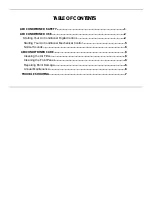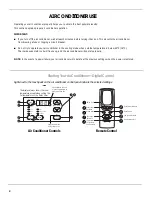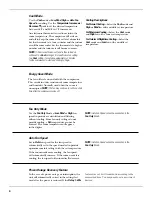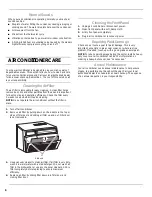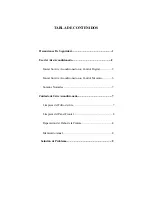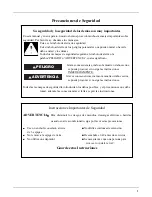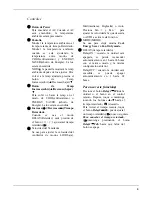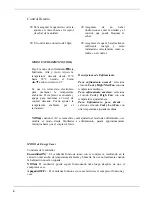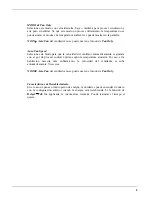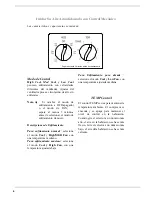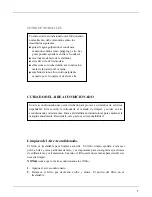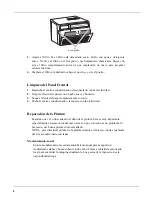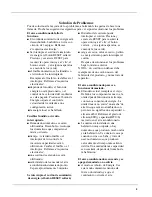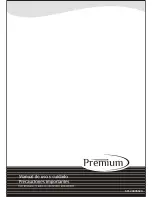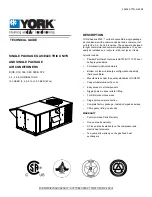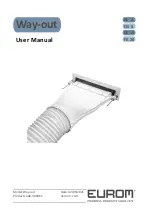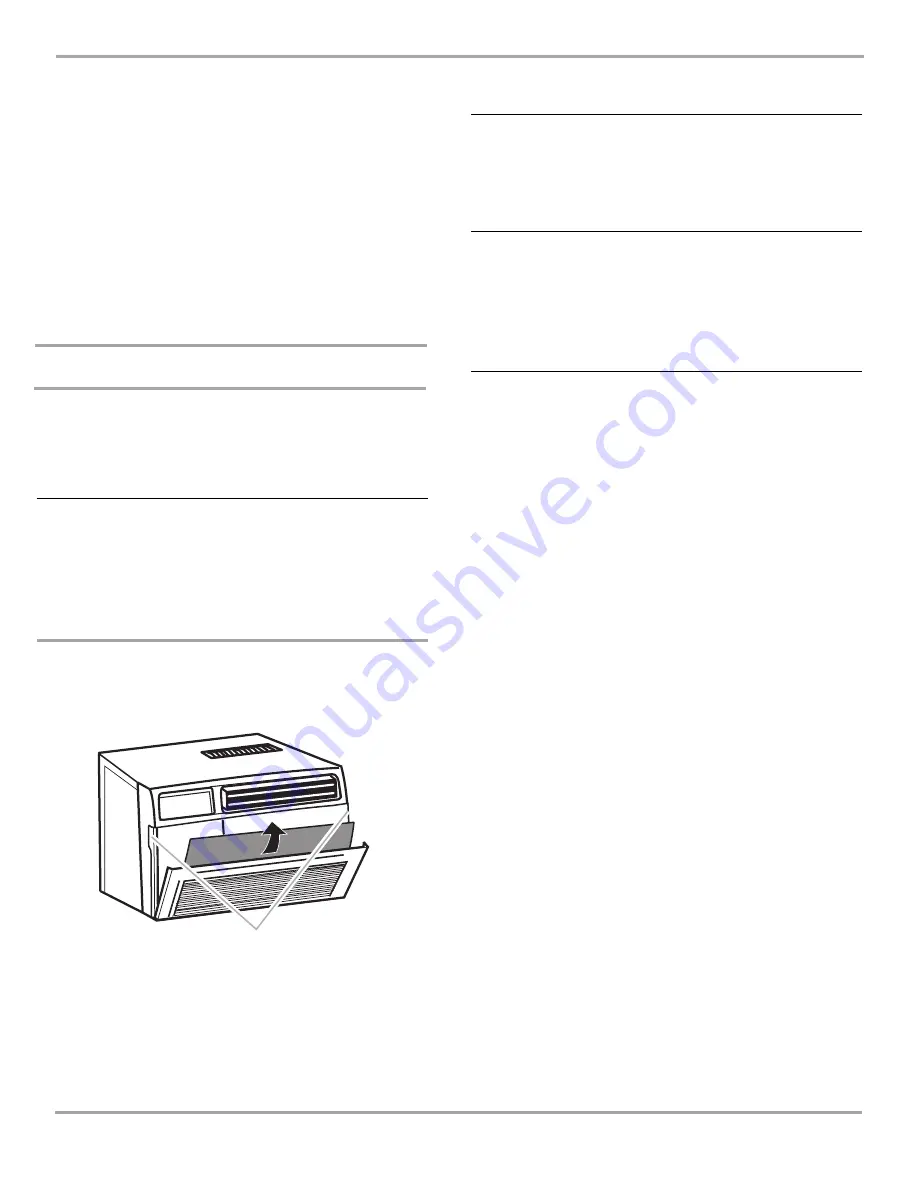
AIR CONDITIONER CARE
Your new air conditioner is designed to give you many years of
dependable service. This section tells you how to clean and care
for your air conditioner properly. Call your local authorized dealer
for an annual checkup. Remember… the cost of this service call
is your responsibility.
Cleaning the Air Filter
The air filter is removable for easy cleaning. A clean filter helps
remove dust, lint, and other particles from the air and is important
for best cooling and operating efficiency. Check the filter every
2 weeks to see whether it needs cleaning.
NOTE: Do not operate the air conditioner without the filter in
place.
1. Turn off air conditioner.
2. Remove air filter by pulling down on the indents in the top or
sides of filter door and sliding air filter up and out. Filter door
is not removable.
3. Use a vacuum cleaner to clean air filter. If air filter is very dirty,
wash it in warm water with a mild detergent. Do not wash air
filter in the dishwasher or use any chemical cleaners. Air dry
filter completely before replacing to ensure maximum
efficiency.
4. Replace air filter by sliding filter down into filter door and
closing filter door.
Cleaning the Front Panel
1. Unplug air conditioner or disconnect power.
2. Clean front panel with a soft, damp cloth.
3. Air dry front panel completely.
4. Plug in air conditioner or reconnect power.
Repairing Paint Damage
Check once or twice a year for paint damage. This is very
important, especially in areas near oceans or where rust is a
problem. If needed, touch up with a good grade enamel paint.
NOTE: To reduce paint damage during the winter, install a heavy-
duty cover over air conditioner cabinet. For information on
ordering a heavy-duty cover, see “Accessories.”
Annual Maintenance
Your air conditioner needs annual maintenance to help ensure
steady, top performance throughout the year. Call your local
authorized dealer to schedule an annual checkup. The expense
of an annual inspection is your responsibility.
A
A. Indents
6
Normal Sounds
When your air conditioner is operating normally, you may hear
sounds such as:
■
Droplets of water hitting the condenser, causing a pinging or
clicking sound. The water droplets help cool the condenser.
■
Air movement from the fan.
■
Clicks from the thermostat cycle.
■
Vibrations or noise due to poor wall or window construction.
■
A high-pitched hum or pulsating noise caused by the modern
high-efficiency compressor cycling on and off.


